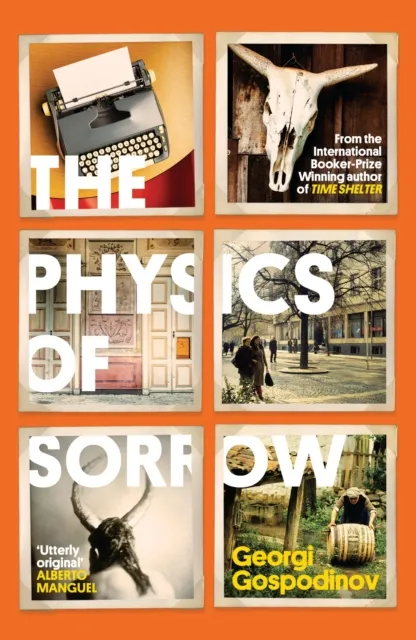📚 Finished reading The Physics of Sorrow by Georgi Gospodinov.
This is another wonderful, mind-bending, book from Georgi Gospodinov, who wrote the “Time Shelter”, a book I greatly enjoyed earlier in the year. This is somewhat peculiar story, but written in a way that feels very suited to my brain; somehow calming even in its melancholy.
Presumably it’s not only my brain that it’s suited to - it became an instant best-seller in its country of publication, Bulgaria, when it was released around 2011. So it was written much before Time Shelter, but has only been released in the UK relatively recently.
As the FT notes, The Economist once referred to Gospodinov’s homeland Bulgaria as a particularly sad place.
Although richer countries are clearly happier, the correlation is not perfect, which suggests that other, presumably cultural, factors are at work…the saddest place in the world, relative to its income per person, is Bulgaria.
It’s somewhat an autobiography - the main character has the author’s name and grows up in the country of the author. The progression through his life is clear. But it’s also fantastical, whimsically and seriously so, as we follow his life - and those of the other minds he inhabits - over time. See, as a child, the book tells us that this Georgi suffers from “obsessive empathetic-somatic syndrome” which essentially allows him to get trapped in and compelled to live out other people’s memories. When in one of these episodes, “I” in this case would not refer to Georgi, but rather his host, for want of a better word.
The story is fragmented, moving from one scene to another and back again, from his point of view to someone else’s, obsessing for a while of some old list he found and then ruminating on what it feels like to be something else, or retelling a snippet of someone’s life story. Time fast-forwards, time rewinds. It’s labyrthinic, and deliberately so. Very much like the human mind, of course.
Gaustine, of Time Shelter fame, gets a shoutout. References to Borges, the author of some of my favourite short stories and similarly a fan of narrative labyrinths are made.
As time passes, story-book Georgi grows out of the afore-mentioned childhood syndrome, and no longer inadvertently leaps into other people’s minds. Instead he becomes a collector of everything; every note, ticket, picture, menus, whatever - boxes of the stuff. But primarily a collector of stories. He’ll pay for a good one.
One of the themes he constantly returns to is that of abandonment, and those oft-related emotions of isolation and loneliness.
Interwoven through the experiences of “normal” people he comes back again and again to Greek mythology, specifically the story of the Minotaur. But in this retelling the minotaur is no vicious beast. He’s just a sad, lonely child who through no fault of his own got born with an alien face.
There is sorrow in him which no animal possesses.
Poor Minotaur’s father hated him. His mother abandoned him to a dark, depressing, lonely labyrinth. At least in this novel you do get to hear the Minotaur have his day in court at one point.
This is the lens which much of the presumably more autobiographical elements and aspects of social commentary are shown through. The claim is made that the “history of the world” can be described through a series of children being abandoned.
